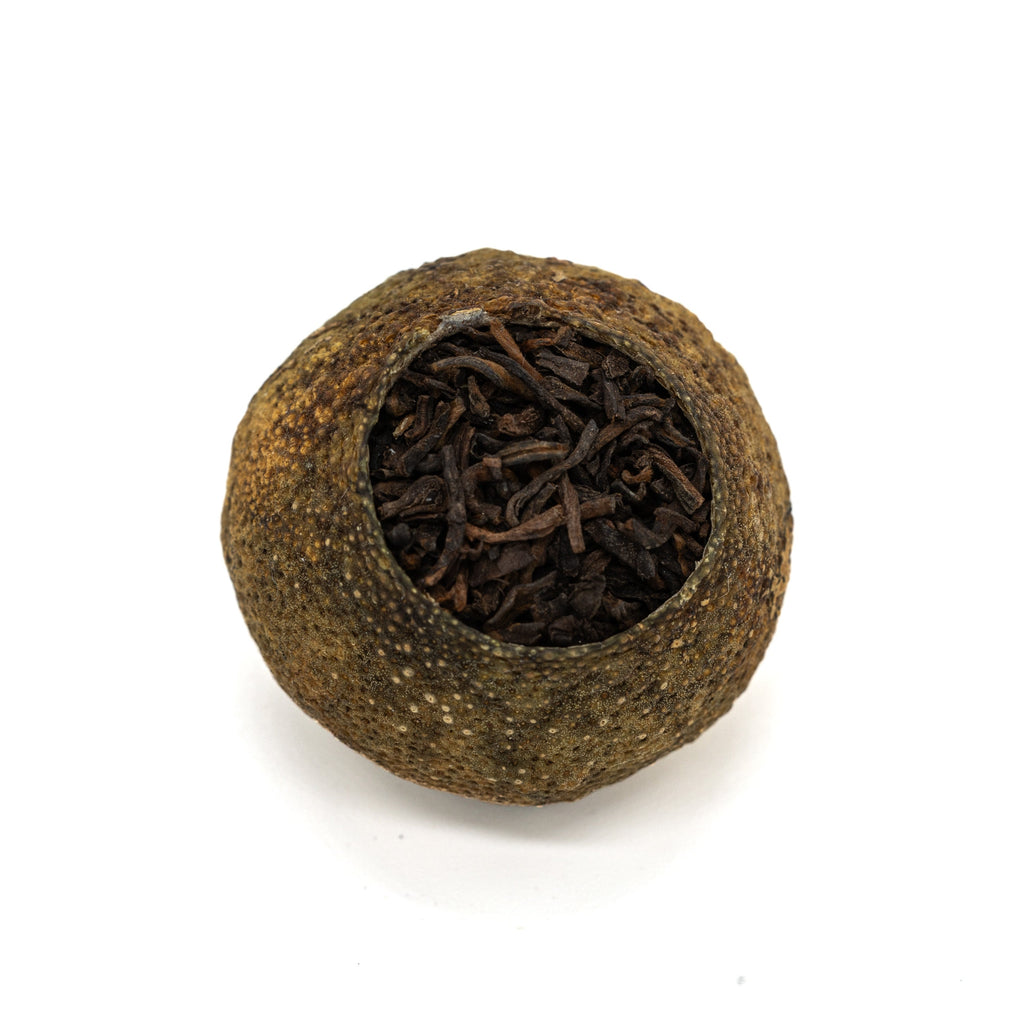Xiao Qing Gan

Xiao Qing Gan (小青柑)
Name
- 小 (pronounced Xiao in Mandarin): means small.
- 青 (pronounced Qing in Mandarin): means green. In this context, it refers to the unripe quality of the fruit.
- (pronounced Gan in Mandarin): means tangerine.
Together, 小青柑 (Xiao Qing Gan) refers to a small, unripe green tangerine that has been stuffed with tea.
The Fruit of Xinhui
Xiao Qing Gan are small, unripe tangerines stuffed with tea, most famously grown and assembled in Xinhui, Guangdong Province. Xinhui cultivates large citrus groves that produce the dried peels (Chen Pi) used in both traditional chinese medicine and tea. Not being a tea growing region, they always use leaves imported from elsewhere.
Xiao Qing Gan are typically filled with Shu Puer but by no means limited to this single filling. Occaisionally, you read that only those with Shu Puer qualify as Xiao Qing Gan; the reality in the crowded markets, however, is that you will find many varieties of tea-and-peel combinations. Moving from seller to seller in the streets of Xinhui, I tasted a range of types, from those filled with bitter and blistering Sheng Puer, to mellow and subtle Bai Cha, and even smokey and robust Hei Cha brick.
While Chinese people have been drinking tea with Chenpi since at least the Ming Dynasty, Xiao Qing Gan is a modern innovation. According to conversations with a few different producers, it seems that filling hollowed-out tangerine skins with tea only began in the 20th century. It did not become popular, much less the viral sensation it is today throughout China, until around 2016.
